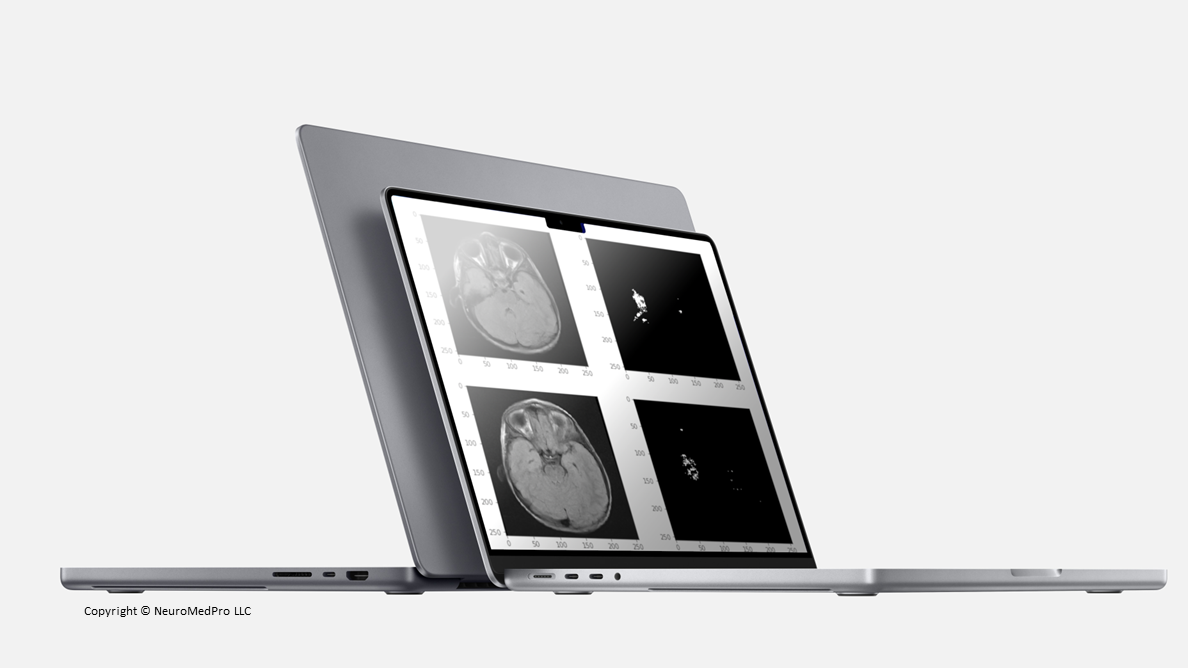NeuroMedPro has received a $100,000 Technology Development Program award from the Arkansas Economic Development Commission.
The Little Rock-based company uses emerging technologies to develop innovative neuroscience software. NeuroMedPro is a spinout of the University of Arkansas for Medical Sciences and Arkansas Children’s Hospital.
NeuroMedPro will focus its TDP award on lesion detection in patients with medication-resistant epilepsy.
ASBTDC Assistance

NeuroMedPro has been engaging Arkansas Small Business and Technology Development Center consulting services for over a year. Rebecca Todd and Catherine Corley of ASBTDC worked with the company to develop its TDP application and refine its marketing strategies.
“They have helped us immensely around how to address some critical issues in the TDP and in our business, particularly how to articulate what we are doing in ways that elucidate both the research basis and the business side of the house,” NeuroMedPro’s Dr. Mark McManis said.
“Additionally, they have facilitated introductions for us and guided us on how to traverse what can be, at times, an overwhelming path through both opportunities and challenges. Their knowledge, support, and generosity have contributed substantially to our success to date.”
The NeuroMedPro Team
Mark McManis, PhD; Lilla Dale McManis, PhD; and Fred Perkins, MD, make up NeuroMedPro’s founders and core team. They have known one another and worked together for close to 20 years. Together, they have a large breadth and depth of clinical, research, and business experience.

Dr. Mark McManis is the chief scientific officer for NeuroMedPro, associate professor of Pediatric Neurology at UAMS, and director of Pediatric Neurodiagnostic Innovation at ACH. His clinical role for the past two decades has been to oversee functional neuroimaging of patients being considered for brain surgery, and his current research is focused on artificial intelligence applications in neuroimaging.
He has also completed a number of entrepreneurial activities, including a commercialization scholars program and the National Science Foundation’s I-Corps STEAM Training in Entrepreneurial Practices (STEP) program.
Dr. Fred Perkins is the chief medical officer for NeuroMedPro, chief of Pediatric Neurology at ACH, and associate professor of Pediatrics at UAMS.

Dr. Perkins is board certified in neurology and psychiatry, with special qualifications in child neurology. He has been a practicing epileptologist since 2005 and has worked extensively on neurosurgery teams. Dr. Perkins also participated in the NSF STEP program.
Dr. Dale McManis is NeuroMedPro’s chief executive officer. She is an educational psychologist with a concentration in learning and cognition. For the past 15 years, she has been involved in the research and development of technology platforms in this space. For the last few years, she has focused on technology startups, holding executive team positions in two companies and advising several others.
In addition to on-the-ground experience, she has participated in training courses in entrepreneurship and technology commercialization, such as NSF STEP program and a Certificate in Technology Entrepreneurship from Harvard and continues to receive mentorship through these courses and the resulting connections made in the tech entrepreneur community.
NeuroMedPro also has a strong advisory board, comprised of Jeff Amerine, Dr. Jeff Standridge, Jeff Stinson, and Dr. Kevin Sexton.
The Opportunity
According to Perkins, one-third of U.S. patients with epilepsy and 65 million worldwide are not treatable with antiepileptic medications. Focal cortical dysplasia (FCD), a disorganization of brain neurons, is a leading cause of this condition.
“Up to 80% of these patients can be seizure-free when treated surgically if a lesion is identified,” Perkins said. “However, the lesions are extremely difficult to detect, and therefore a significant number of people remain undiagnosed and continue — sometimes for decades — taking medications which do not control their seizures.”
The Solution: AI Brain Lesion Detection Software

NeuroMedPro is developing software that detects FCD lesions using adaptive artificial intelligence (AI). Increased detection leads to opportunities for surgery, improved patient quality of life, and an alleviation of the estimated annual $414 billion economic loss attributable to uncontrolled epilepsy.
“FCD lesions are currently found through manual review of MRI scans. These complex, time-intensive manual reviews can miss up to 50% of lesions, even when conducted by experienced neuroradiologists,” said Dr. Mark McManis.
“There are no commercial products that use AI to detect FCD as of now. Our technology fills the gap,” he added.
In addition to AI, NeuroMedPro’s diagnostic software uses virtual reality (VR) technology to “elevate what clinicians can see and therefore improve surgical planning for the best outcome possible for a patient.”
NeuroMedPro is also developing software that detects seizures before they occur, giving medical professionals the opportunity to diagnose, respond, and plan treatment earlier.
Learn more about the company at neuromedpro.com.
Impact on Arkansas
NeuroMedPro’s work helps set a precedent for the growth of high-tech jobs in Arkansas.
“All of us here in Arkansas are fortunate that there is such interest and support for businesses creating high-tech jobs in the state. We believe the foundation for such jobs is only possible by creating outstanding products that serve a confirmed need,” said Dr. Dale McManis.
The company’s focus on innovative technologies with high growth potential and use of expert business counseling and mentorship reflects a model of success grounded in the local community.
“NeuroMedPro always appreciates an invitation to the table,” Dr. Mark McManis said. “Our team has found that we thrive both on support for our own efforts and when we get an opportunity to give back. On a practical level, we are building a product in the health space, so support from hospitals and clinicians to pilot, launch, and grow will be critical. As we will focus first on serving Arkansas patients, it will definitely be at the community level where support is most appreciated.”
Advice for New TDP Applicants
Dr. Dale McManis advised first-time TDP applicants to give themselves time and space needed to prepare a robust application.
“It will likely take longer than you expect,” she said. “Keep top of mind the flow of your proposal so your reviewers can move along smoothly. Ask for guidance when you feel stuck and be receptive. Don’t let feelings of being intimidated to submit a proposal stop you. It gets easier with practice.”